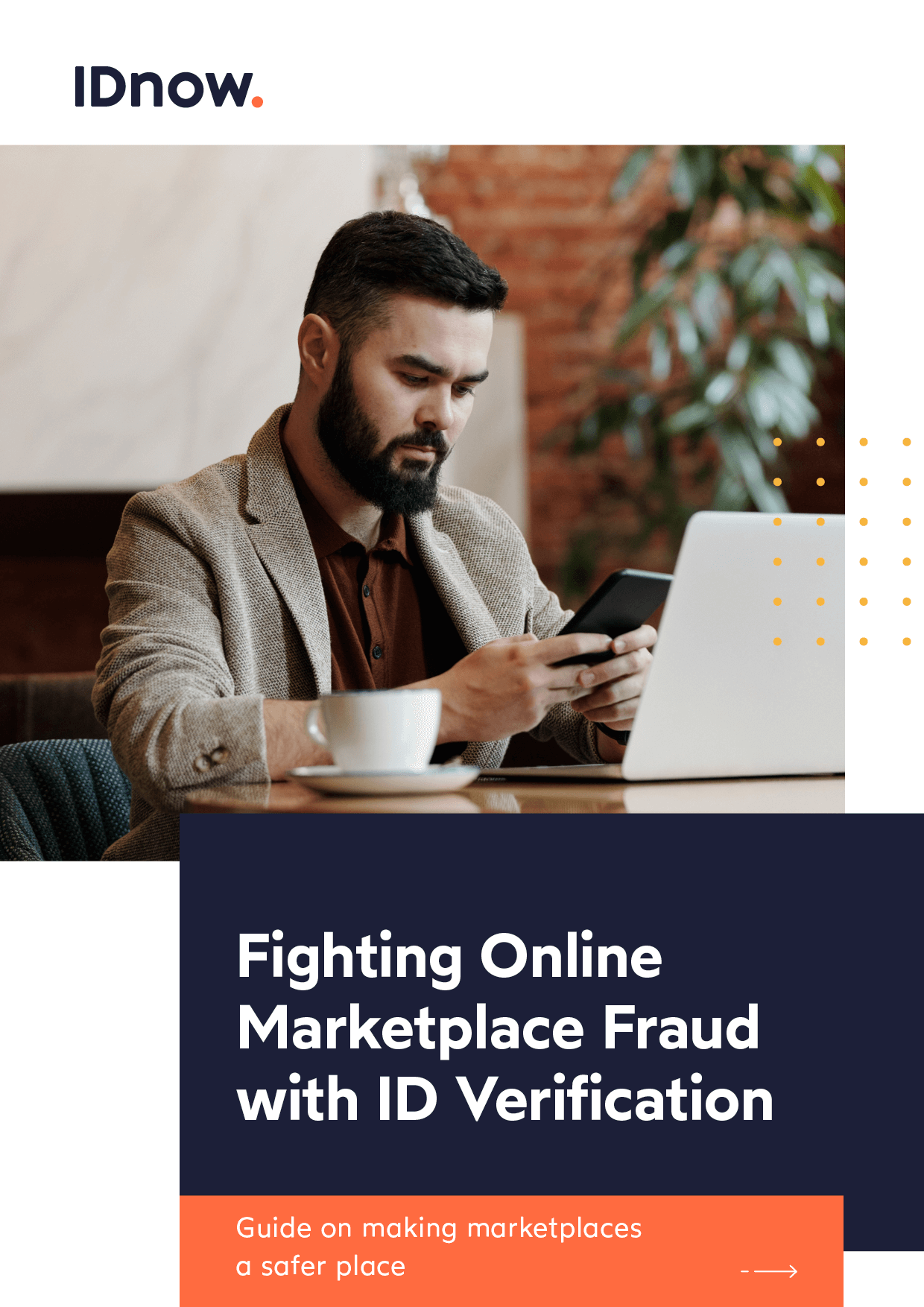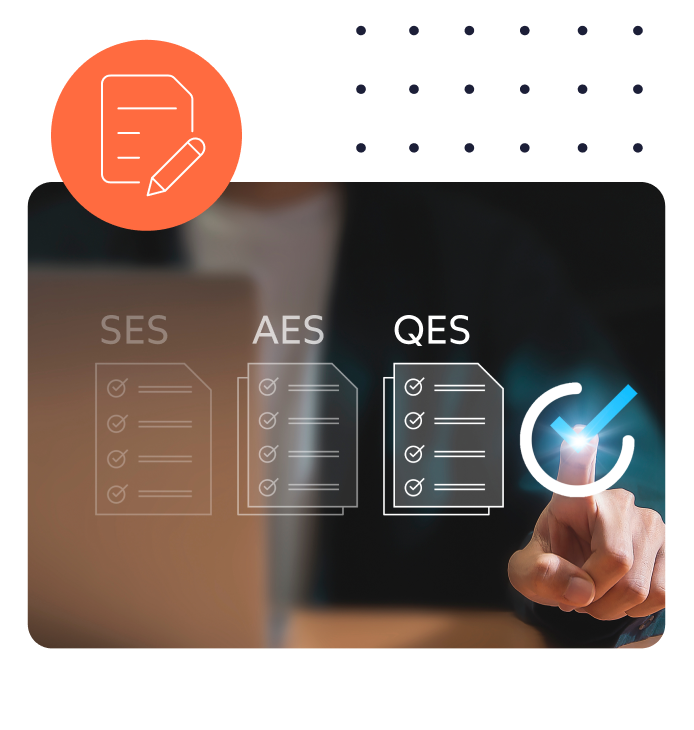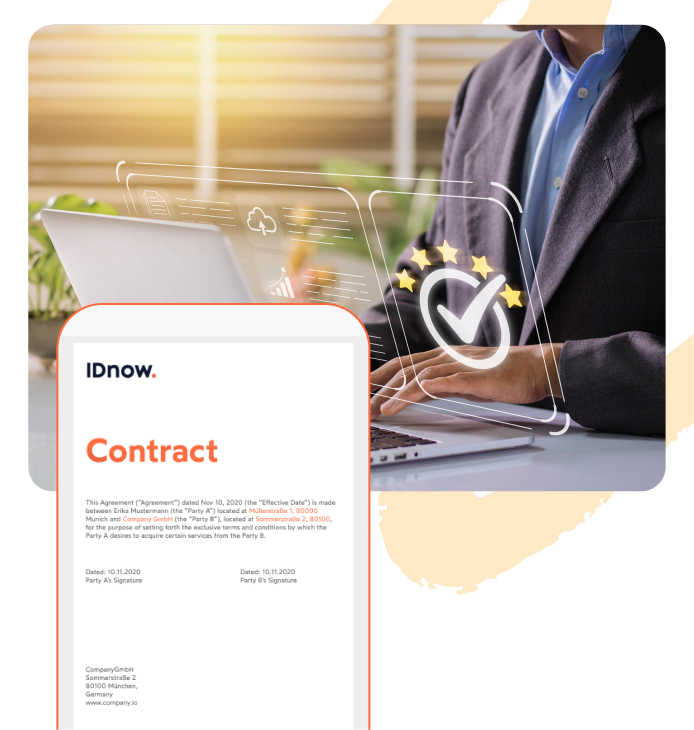More than 7 billion people walk the face of the earth, and more than half (4.66 billion, to be specific) of us have access to the internet.
People love the internet because it makes everything easier. We buy and sell, we communicate with people from anywhere, and for most of us, our source of livelihood is heavily connected to the connected world.
But (and there’s always a but), nothing’s perfect, not even the revolutionary “interconnected network.” The internet’s problems are underneath one overarching concern —security and fraud.
But what does this all have to do with online marketplaces? Easy—they are big and just getting bigger. Thus, they are like the pot of gold at the end of the rainbow, especially for fraudsters.
What is an online marketplace and what is online marketplace fraud?
Online marketplaces can be described as “advanced department stores.” They are digital points (websites or apps) that facilitate shopping for several buyers and sellers, with Amazon being the best example and Facebook Marketplace a popular and well-known choice too. Not actually owning any inventory, its essence is to create a platform for numerous sellers to display their merchandise to attract and make transactions with all the buyers who use that platform.
Basically, online marketplaces are the new way to shop. Everything from housing, consumer goods, automobiles, and digital services are accessible through online marketplaces. Plus, they are super convenient, especially from a buyer’s perspective, and that’s why they’ve been so successful.
In the United Kingdom alone, Amazon, eBay, and Etsy get around 700 million visits per month to their websites. Furthermore, several of the world’s fastest-growing online marketplaces are from Europe, which are included in our detailed ebook.
The prevalence of online marketplaces in Europe is the secret behind the geometrically progressive growth of e-commerce in Europe. Europe’s e-commerce sector is expected to be worth $570 billion by 2025, and you can bet your bottom dollar (or your choice currency) that online marketplaces will be at the center of that boom.
That’s what makes them a big deal.
Online Marketplace Fraud: the spoilsport
Online marketplaces are a treasure trove for fraudulent activities, and there are very few issues that keep the marketplace operator awake at night, like online marketplace fraud.
It’s not just the United Kingdom that’s getting torn apart by fraudsters, Poland, Hungary, and Malta all have a higher fraud rate than the UK. Rather, it’s the whole of Europe. But that should come as no surprise since e-commerce sales in Europe were worth 718 billion euros in 2021.
Two things which make Online Marketplace Fraud very dangerous:
The first is obvious. The simple fact that marketplace operators, buyers, and suppliers suffer enormous financial loss makes incidences of fraud undesirable. No one likes to lose money.
The second is less obvious to everyone else except marketplace operators. Marketplace fraud is the easiest way to create a horrible user experience, lose customers, and ultimately go out of business. A pest infestation of a field of corn offers a near-perfect analogy.
Unless the right fraudulent strategies are implemented, a single fraudulent event is always a harbinger of more fraudulent events.
What makes Online Marketplaces attracted to fraudsters?
In one word:
Money.
The more successful your marketplace becomes, the more attractive it looks to fraudsters.
Most online marketplaces don’t just connect buyers with sellers; they also facilitate transactions. Online marketplace operators receive, pay, and hold money for their platform users.
This ability to receive, pay, and hold money is like a clarion call to unwanted third parties. They want to get in on the act and divert money for themselves.
Granted, the desire to divert may not be enough until you add that these parties to the transaction are strangers to each other. They are transacting on faith and trust that both the operator and the person on the other side is who they say they are.
Combine sufficient liquidity with invisibility, and you’ll quickly discover that someone somewhere ends up with something that isn’t theirs. No one knows this better than fraudsters.
What are some examples of online marketplace fraud?
Since online marketplaces are dealing with personal information both from the buyer and seller, fraudsters tend to target marketplaces with social engineering schemes as well as phishing for identity theft in order to commit synthetic identity fraud. Online marketplaces are a treasure trove of personal information ripe for the taking and identity theft has never been so prevalent as seen in our latest fraud report. Here are a few examples of the types of fraud that occur on online marketplaces:
- Fake money, real goods:
Online Marketplace purchasers posing as fraudsters will acquire real goods and services without paying for them.
- Real money, fake goods and services:
This is also known as marketplace supplier fraud. What typically happens here is that a supplier takes a confirmed order for goods or services and does not actually provide anything in return.
In addition to the above, fraud occurs on both sides of a transaction. Here are some examples from both the seller-side, buyer-side and both sides:
- Seller-side marketplace fraud
This side of the transaction is conducted by the seller and negatively impacts the buyer and/or platform. Examples include:
Listing fraud/product fraud, fake profiles, false advertising, Buyer/Seller closed-loop account fraud, promotion schemes
- Buyer-side marketplace fraud
This side is conducted by the buyer and can negatively impact the seller and/or platform. Examples include:
Fake accounts, duplicate accounts, transaction fraud/payment fraud, chargeback fraud/friendly fraud
- Both sides:
Other forms of fraud can occur from both the buyer- and seller-side. These include:
Onboarding inaccuracies, Account Takeover fraud, Account-as-a-product fraud
What are the most common types of fraud for online businesses?
Fraud is everywhere online, especially on marketplaces where buying and selling takes place and personal information is exchanged. Thus, fraud is present on both the buyer’s side as well as the seller’s side. Here are some of the most common types of marketplace fraud:
• Fake accounts/profiles
• False advertising
• Listing fraud
• Account takeover (ATO)
• Payment fraud
• Friendly fraud/chargeback fraud
How do you know if someone is scamming you on marketplace?
The most obvious signs of marketplace fraud include accounts with no history, generic names, and stock profile pictures. Additionally, if someone tries to try to get you out of the marketplace to continue an exchange elsewhere, asks to pay extra for your item, or asks for a phone number, these are also red flags.
What to do if scammed on marketplace?
If you have been the victim of a scam on marketplace immediately stop all communication with the buyer or seller and report them to the corresponding marketplace.
Where do fraudsters make their first move?
The typical gateway for fraudsters is at the initial entry point into the online marketplace.
Anonymity is a necessary tool for fraudsters, and the best time to create that anonymity is during customer onboarding. Fraudsters typically choose false profiles rather than create accounts with real identities behind them. These fraudulent profiles appear legitimate to the unsuspecting eye, so business carries on.
But if you look closely, you may discover a few things. For example, a purchaser account might contain the exact same details as a supplier account, with the profile name being the only difference.
This is precisely why the best fraud prevention strategy is to leverage a system that validly identifies new customers. Therefore, the ultimate goal is to disable systems in the marketplace software that allow people to sign up without connecting their true identities.
Thankfully, marketplace operators don’t have to start from scratch with identity verification because most citizens already have a recognized identity document. All that is left is to choose a service that can verify a person’s ID document and biometrics to check whether a person behind the transaction is who they say they are.
Marketplaces ebook
Fighting Online Marketplace Fraud with ID Verification

Online Marketplace Fraud Prevention
When it comes to preventing online marketplace fraud, it is important for marketplace operators to stay alert of the latest scams, cross-reference data to make sure data isn’t being recycled by fraudsters, monitor the behavior of both buyers and sellers, and of course have a secure, compliant KYC solution that runs identity checks to stop all types of fraud on the marketplace.
IDnow is an identity-verification-as-a-service platform that relies on cutting-edge ID technology to help online marketplace operators stop fraudsters at the gate.
IDnow solutions can verify the identity of a marketplace user within a very short time. Customers are simply required to provide an identity document and take a selfie with their phone while IDnow handles everything else.
Online marketplaces in Europe don’t have to bother about regulatory compliance with IDnow, since IDnow solutions are compatible with the legal requirements of every country in Europe.
As an online marketplace operator, your users are far more at ease when they realize that you have admitted only those with valid and traceable identities.
You also get the added benefit of fraudsters running away from your marketplace to choose other less secure marketplaces.
With this in mind, here are a couple IDnow solutions you can try for your online marketplace:
IDnow AutoIdent — Automated, AI-powered identity verification for smooth, easy, and secure customer onboarding. Applicable for many use cases, even highly regulated cases.
IDnow eID — Simple, compliant, NFC-based identity verification using the new German identity card.
Read on for more insights and practical advice in our ebook on fighting fraud as a marketplace operator. We are there for your online marketplace needs, so you and your consumers can carry on transacting securely.
By

Michael Holland-Nell
Senior Sales Manager at IDnow
Connect with Michael on LinkedIn



